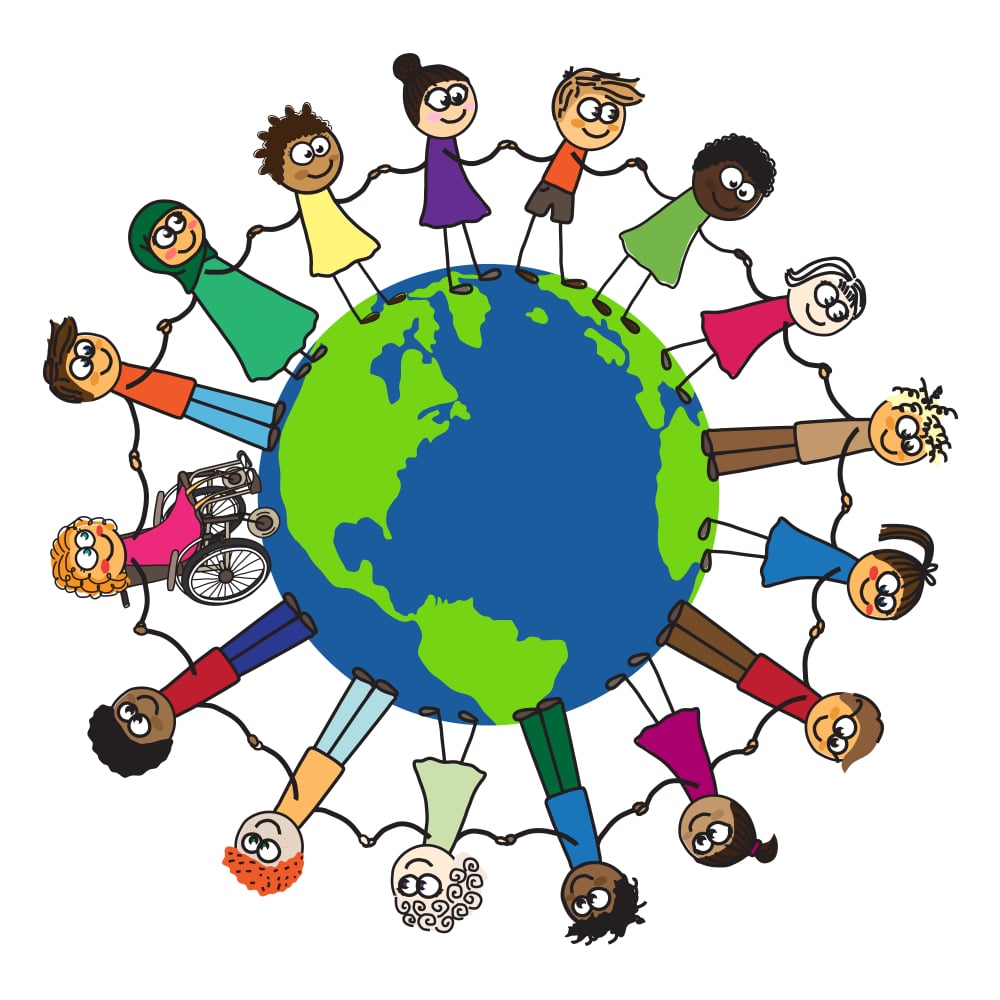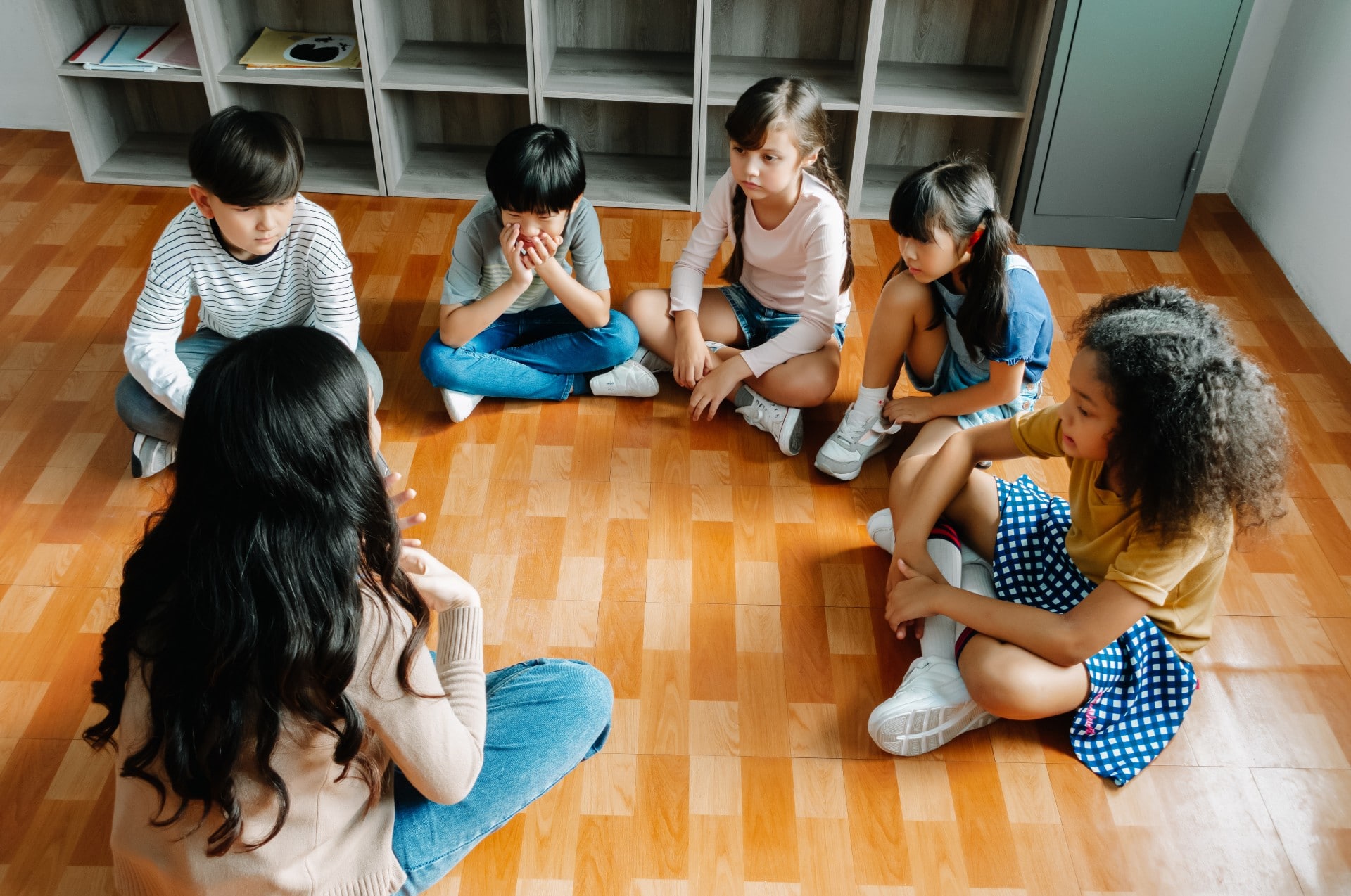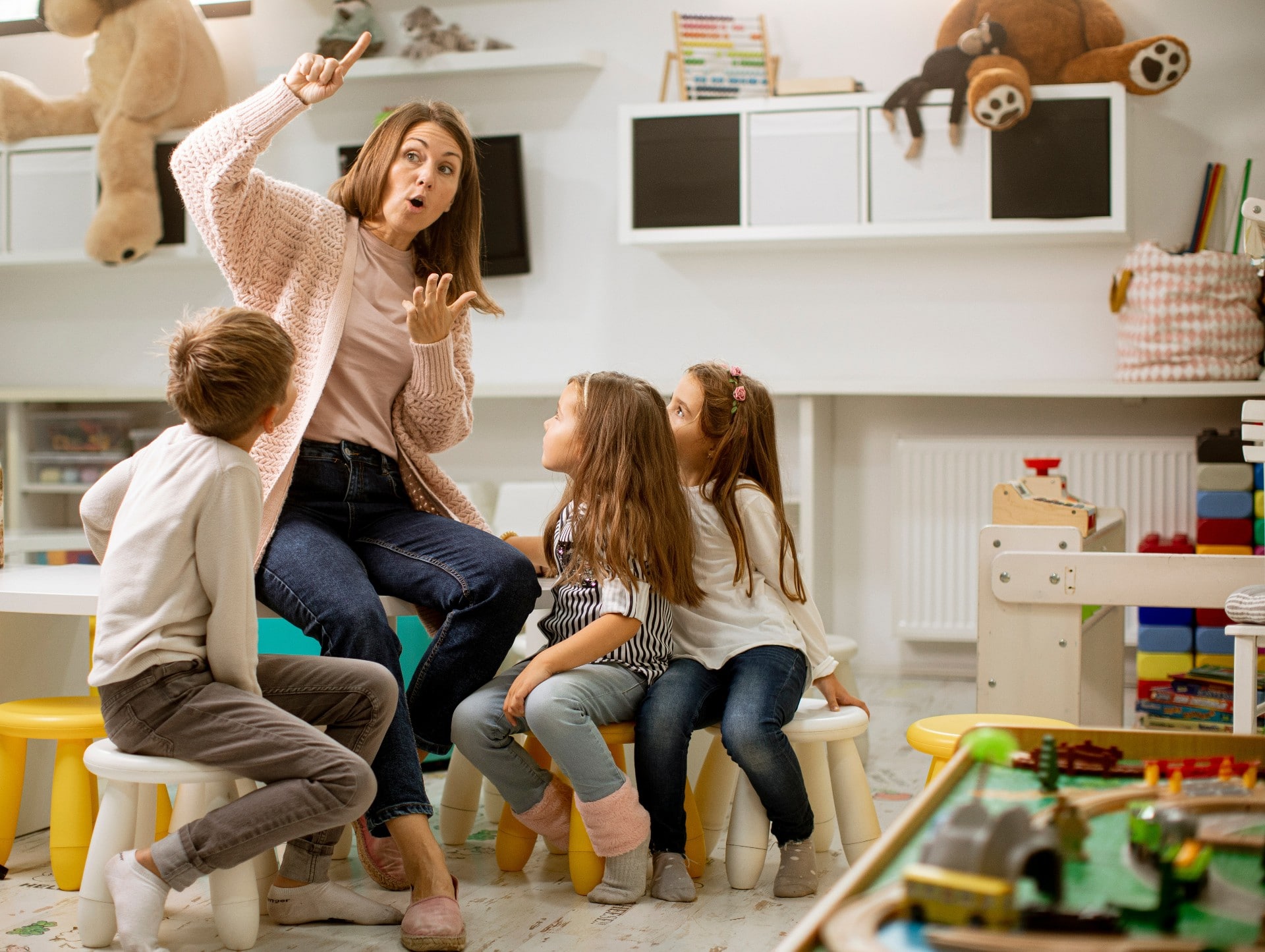We explore the benefits of storytelling for National Storytelling Week so you can understand the importance of storytelling in the classroom.
The benefits of storytelling
Teaching English
One of the more obvious benefits of storytelling in the classroom is it helps develop children’s English skills. Reading, especially out loud, can help them to form new and complex words that they haven’t heard before. Children can begin sentence building with complex sentences and widen their vocabulary as different words are put into context for them.
Teaches children about people and life
Storytelling allows children to delve into scenarios that occur in real life that they may not know about yet. This helps them grow as a person as they can become more open-minded about life. Plus, storytelling can prepare pupils for potential scenarios that could occur in their futures too.
Children also explore different people’s lives through storytelling. They can gain a positive attitude in understanding and respecting differences in people such as: cultures, ethnicities, disabilities, faiths/beliefs etc.
Another key learning is insights into traditions. Stories can teach children about traditions that different people in real life have. They can discover what traditions cultures and religions have and how they celebrate them to better understand the world and the people within it. This allows children to have knowledge of unfamiliar people and places.

Helps with social skills and teamwork
Storytelling helps children to socialise with others in their class. A story can build their confidence to interact with other pupils they may never have talked to before; this is due to many stories having the power to start conversations about the book. Children get excited about certain stories and can’t wait to chat about what they think about the book or discuss their favourite parts with anyone and everyone. They can bond with others over it too through common interests. This leads to friendships forming which may never have happened before.
Through socialising more, children build teamwork skills. Stories can improve teamwork skills especially when the class take turns to read sections of the story. In doing this, storytelling encourages participation to read out loud to the rest of the class.
Helps with relaxing
One of the best benefits storytelling in the classroom offers for children is the huge impact on mental wellbeing. Stories can improve their wellbeing as it is a time when they can wind down from learning. It gives them time to take a breath and escape reality.
It is also a time to reflect through the themes within the story that they may be able to relate to. Stories can make children feel less alone as they explore a wide variety of themes that occur in real life. If something is happening in children’s lives, they can recognise the same struggles and feel happier about their situations.
Another way stories can help with children’s wellbeing is by giving them the confidence to openly talk to others about their feelings. This can be due to a character or theme in the story that they may relate to. You can have a discussion with your class about any feelings the story has brought up for them, so they can explore how they feel in the moment and outside of school. This can help to alleviate sadness or stress as they can get any problems off their chests.

Builds listening and creativity skills
Storytelling is often done out loud. This means that children are listening intently which helps to improve vital listening skills. To ensure that your class carries on listening (without growing bored) play out what is happening in the story, from changing voices for different characters to acting out scenes for them to enjoy.
Stories are very inspiring, especially for children. They can spark their imaginations which turns into creativity. A story can spark new ideas for children to consider, whether that’s with their own writing or in another creative form. It is great to allow children to express themselves in any creative form. Creativity isn’t just fun, but vital for children to develop throughout their lives, particularly for younger kids as it’s a perfect way to develop fine motor skills.

For more information about the benefits of storytelling take a look at this resource from teachingEnglish.
Why not step up your classes to celebrate National Storytelling Week with our classroom activities guide!